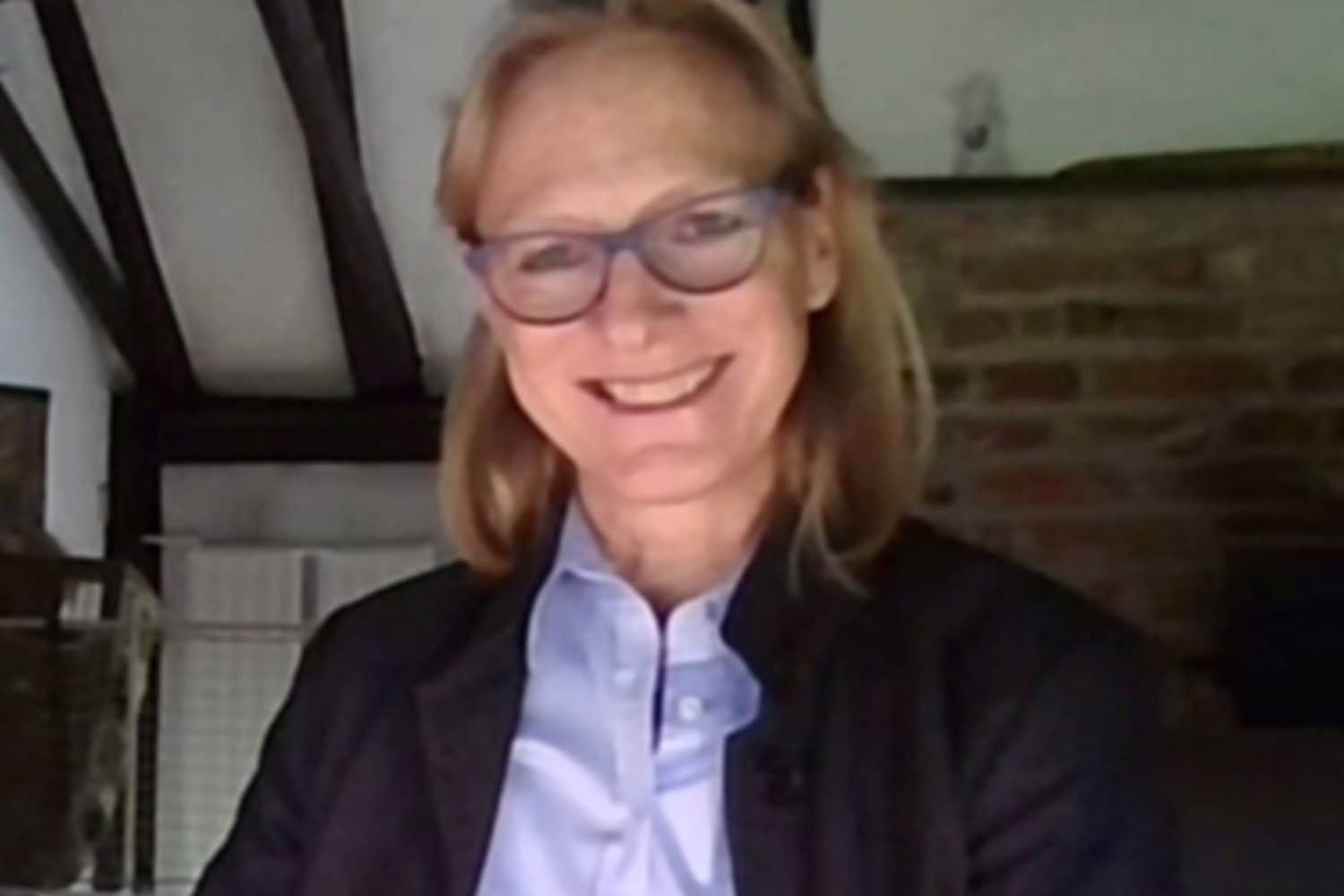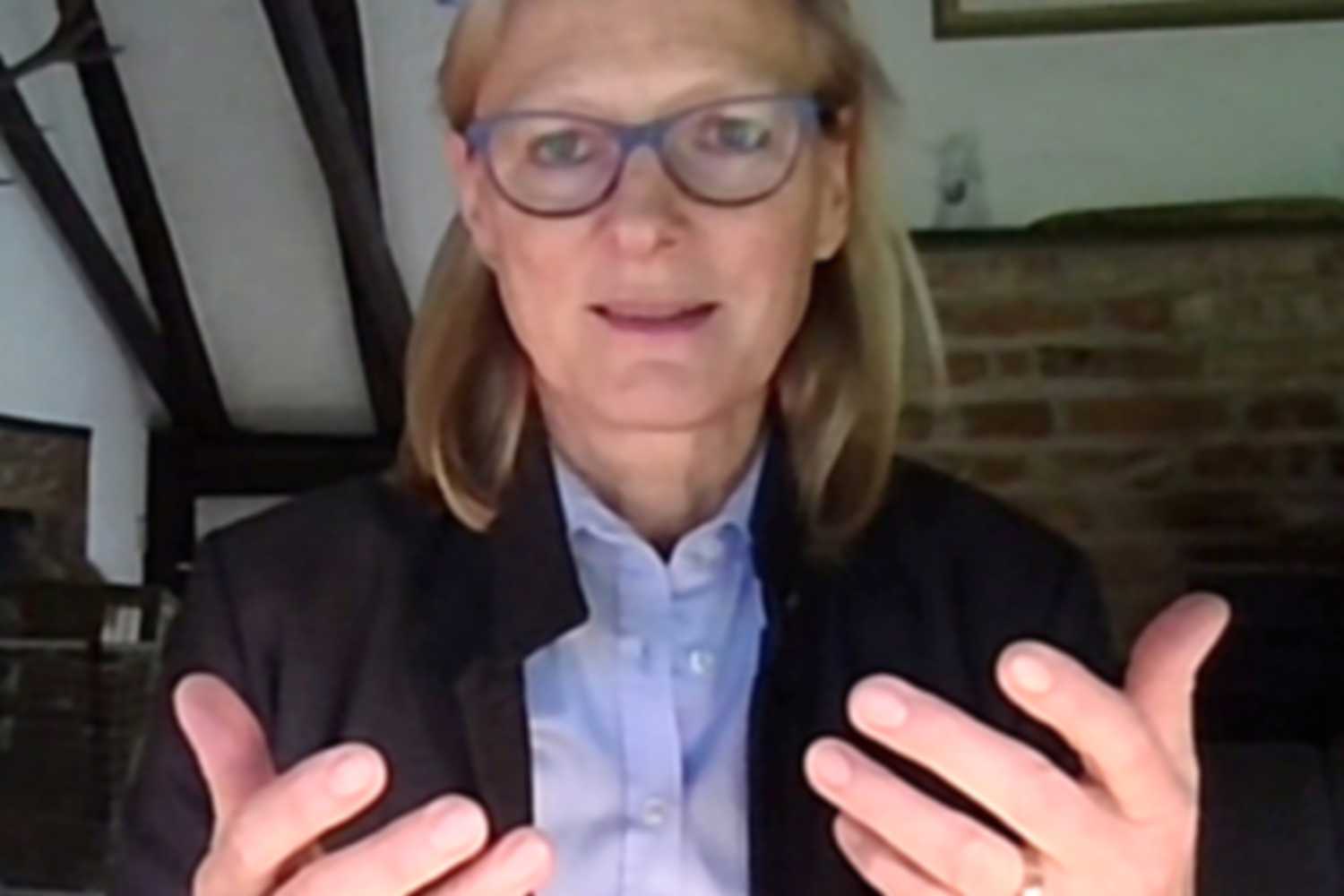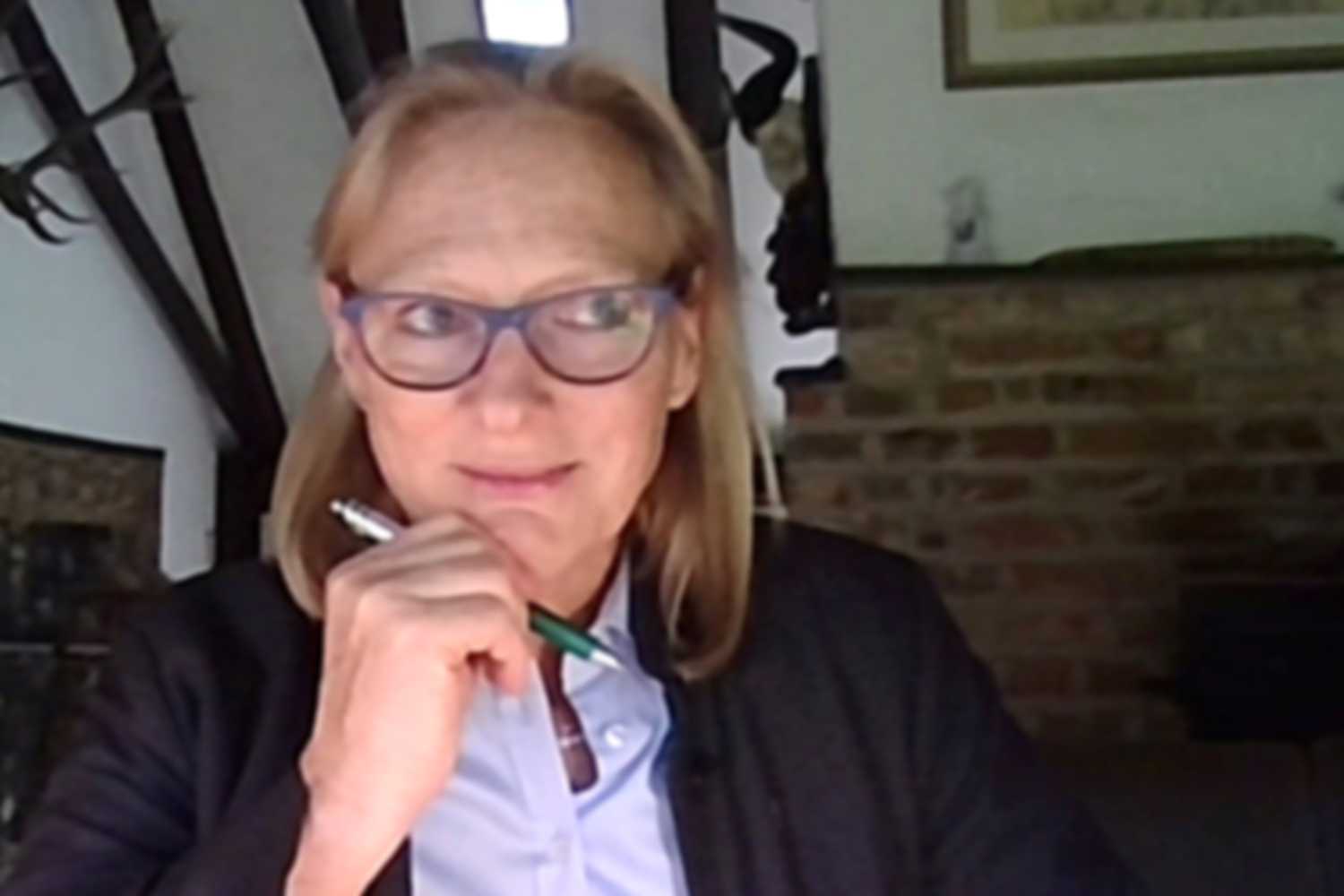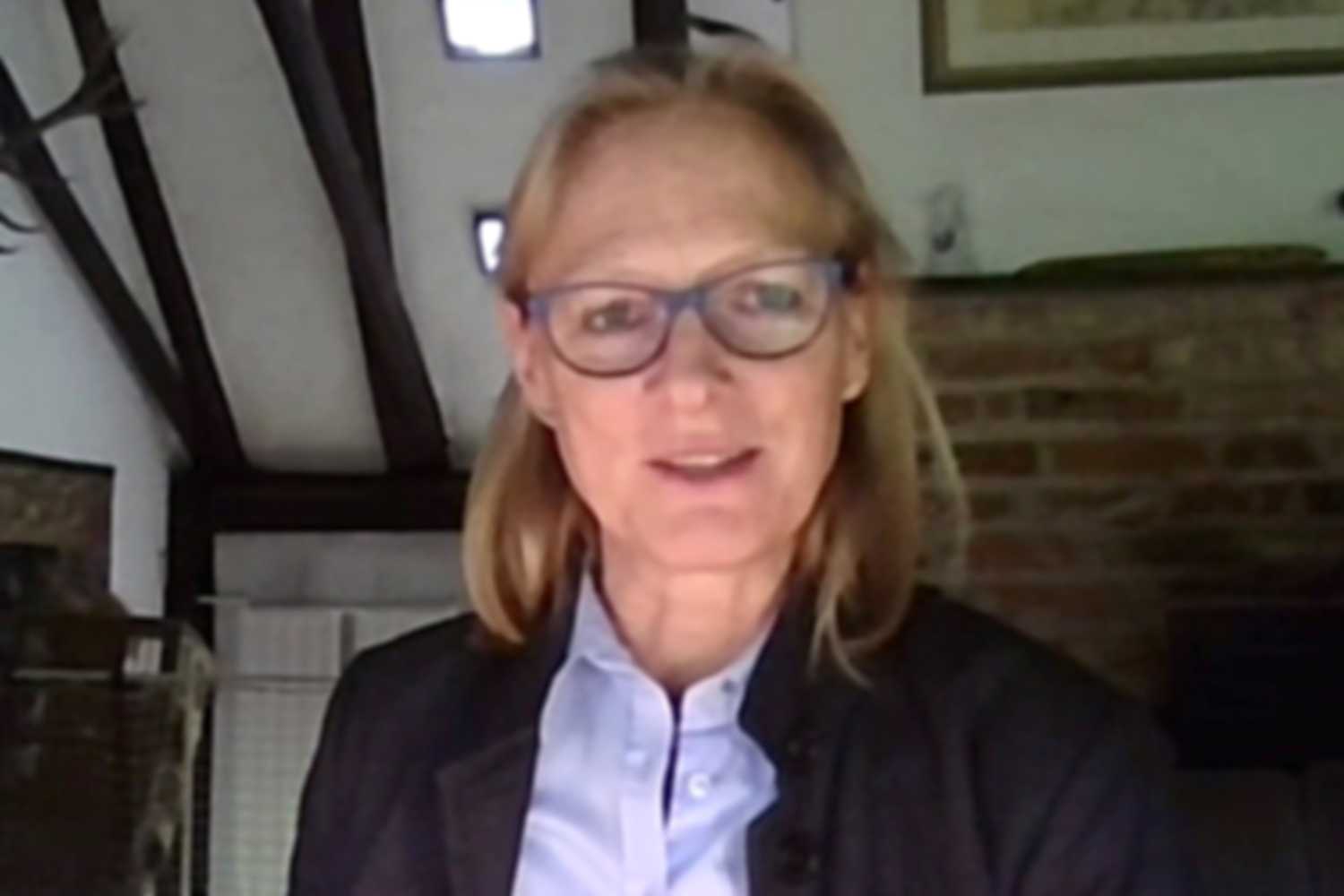Hello Birgitta Wolff!
How is unconcious bias hindering female founders? What fascinates you about the invention of the washing machine? And how can we shoot higher with German innovations? Tell us about it.
WHAT DO YOU DO, PROFESSIONALLY, ALL DAY? WHAT IS THE EXACT FIELD/DISCIPLINE IN WHICH YOU WORK?
Currently, like many of us, I sit at my desk in my home office and participate in many video sessions. I am a business administration professor at Goethe University in Frankfurt; currently on sabbatical. A wonderful time out, in which I get to read, think and write again. And, of course, I have much more time for SPRIND's supervisory board meetings.
WHAT LED YOU TO TAKE SUCH AN INTEREST IN THIS FIELD/THIS DISCIPLINE? WHEN DID IT BEGIN? AND WHAT HAPPENED NEXT?
The field of SPRIND? Knowledge-intensive innovation? I have been working in or for science for many years. It annoys me that we in Germany so often don't get the horsepower out on the road. I'm happy if I can contribute to finally making improvements.
WHAT CAREER STUMBLING BLOCKS STONES WERE IN YOUR PATH, AND HOW DID YOU OVERCOME THEM?
In their working lives, women are still often unconsciously confronted with different expectations than men, and their behavior is also evaluated differently. Now that openly discriminatory behavior is becoming rarer, it bothers me all the more. It helps to constantly question such patterns in combination with structural changes. Then hopefully something will change.

DID YOU CONSIDER YOUR GENDER TO BE AN ADVANTAGE, A DRAWBACK OR A NEUTRAL FACTOR IN YOUR CAREER?
Unconscious bias
is an issue that we are now well aware of in theory. But practically, in my experience, the problem is far from being solved. On the other hand: especially at the beginning of my professional career - deep in the last century - being female and young could also be an advantage in some ways. It was rare and stood out. From my point of view, this also resulted in opportunities. I have to admit: I didn't think about it most of the time, but tried to develop good ideas and then implement them with passion. If you do everything you do as well as possible and with as much commitment as possible, things always continue to be exciting.
WHAT DRIVES YOU ONWARD AND UPWARD? (WHAT ARE THE SOURCES OF YOUR VERTICAL STRESS?)
Ideas that excite me. People who inspire me. And networks to which I can contribute.
WHICH DISRUPTIVE INNOVATION HAS IMPRESSED YOU THE MOST?
I am fascinated by innovations that ultimately have their most far-reaching effects more in the social sphere than in technology. One such innovation was the invention of the washing machine. In my view, its best effect was that women suddenly had time to do something other than scrub their husbands' soiled shirts. I also like the extensive use of video conferencing technology: Avoiding travel can reduce the burden on the environment and significantly decelerate the working lives of many.

WHAT IS YOUR VIEW OF THE CULTURE AND LANDSCAPE FOR INNOVATION IN GERMANY (AND IN EUROPE)? WHAT WORKS WELL? AND WHAT DOES NOT WORK? WHAT DO WE NEED IN GERMANY TO GIVE RISE TO MORE SUCCESSFUL INNOVATIONS?
I keep asking myself why all the money looking for investment opportunities, which is currently wandering around in the low-interest market, doesn't find the many potential start-ups from science better. There is still a lot to be done here, especially in Germany. But there are an increasing number of instruments that address this issue. SPRIND is definitely one of them. At Goethe University, we have also taken advantage of the opportunities offered by the foundation university and, during my time as president, built up a fund for venture capital - fed by private sources, among others - in order to be able to better promote promising start-ups from science.
In my view, what is already working relatively well is the diffusion of excellent know-how across the board, including small and medium-sized enterprises. This has to do with the strength in breadth
of the German education system, including the university system, as a study by Harvard economists also confirmed. There, many wondered why the German economy as a whole is doing so well, when the big unicorns apparently tend to be created elsewhere. If we could add a biontech to our innovative strength on a broad scale more often, that would be great! Green IT could also be another good topic for innovation in Germany. Here, too, there is an urgent need for social action to ensure that the exploding demand for energy does not strangle us at some point in the face of the general digitalization euphoria.
WHERE/IN WHAT SECTOR/FIELD/AREA IS INNOVATION PARTICULARLY LACKING?
When it comes to innovations, we always look primarily at the economy. But I also see a lack of innovation in the public sector, especially in reducing bureaucracy. So much could be achieved and good things could be unleashed here through imagination, courage and smart digitalization!

IS IT IMPORTANT TO PROMOTE WOMEN SCIENTISTS AND INNOVATORS DIFFERENTLY AND MORE FORCEFULLY? DO YOU HAVE ANY IDEAS ABOUT THAT?
In the Sunday edition of the FAZ of May 2, there was a wonderful article that described very clearly how unconscious attributions and unequal valuations also slow down potential female founders - even though, according to a study by BCG, female founders earn 78 cents per dollar invested, while male founders earn only 31 cents. It also describes how one and the same pattern of behavior in the capital market is financially penalized for female founders and rewarded for male founders. In a nutshell, I'm currently fascinated by instruments that undermine the unconscious bias
. We have to put an end to the situation where women are held to account for behavior that would be praised in the case of men! I support an initiative that aims to develop a clever media awareness campaign with students from an arts university for such gender-specific attributions and unequal evaluations. And I am happy to support ideas and measures that help to give greater recognition to women's family achievements or to prevent dysfunctional self-selection mechanisms, e.g. in appointment procedures. Equality needs not only awareness of inequalities but also concrete structural rule changes in organizations.
WHAT DISRUPTIVE INNOVATION DO YOU ABSOLUTELY WANT TO SEE COME ABOUT? / WHAT BIG PROBLEM WOULD YOU LIKE TO SOLVE?
Preventing or curing serious diseases and reducing environmental impact.

Birgitta Wolff has been crossing borders between science, business and politics for many years. After an apprenticeship, she studied economics and philosophy in Witten/Herdecke, then went to Munich University for her doctorate and post-doctorate. This time was again and again complemented by longer stays abroad, e.g. at Harvard University, Stanford or Georgetown, or practical episodes. Of a total of six professorships calls, she accepted the one in Magdeburg and later the one in Frankfurt/Main. She led Frankfurt's Goethe University as president for six years. Prior to that, she served for several years as minister responsible for science, schools, culture and economics in the state government of Saxony-Anhalt. In addition to the Supervisory Board of SPRIND, her mandates include the Board of Directors of ZDF, the Board of Trustees of the VW Foundation and participation in the Hightech Forum of the German government.
